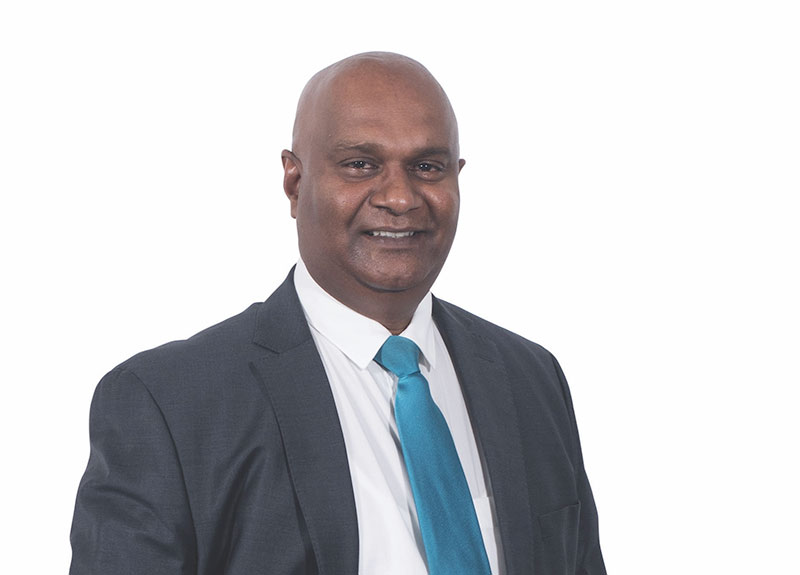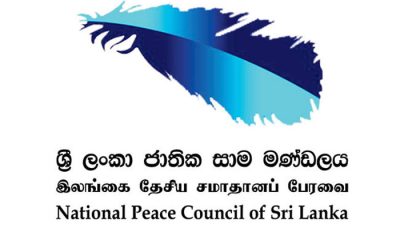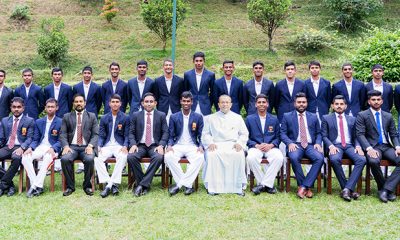Business
COVID-19 crisis could set-back a generation of women in business

Women across the world have been disproportionally impacted by the COVID-19 pandemic – a staggering 87% of women business owners say they have been adversely affected. Overrepresentation in sectors hardest hit by the economic downturn (tourism, retail, F&B, etc), the pronounced digital gender gap in an increasingly virtual world, and the mounting pressures of childcare responsibilities are only a few factors that have left women particularly vulnerable.
In tackling this stark disparity and unlocking the fullest potential of women in business, the Mastercard Index of Women Entrepreneurs (MIWE) 2020 report findings make a compelling case for building on targeted gender-specific policy best practices internationally.
Now in its fourth year, MIWE highlights the vast socio-economic contributions of women entrepreneurs across the world, as well as providing insight on the factors driving and inhibiting their advancement. Through a unique methodology – drawing on publicly available data from leading international organizations, such as the OECD and International Labor Organization – MIWE 2020 includes a global ranking on the advancement of women in business in pre-pandemic conditions across 58 economies (including 15 in the Asia Pacific region), representing almost 80% of the female labor force.
MIWE 2020’s top performing economy is a prime example of gender-specific support mechanisms having swift and significant results. For the first time, Israel tops the MIWE as best economy for women entrepreneurs worldwide, advancing from 4th place in 2019. With an ambition to double the number of female entrepreneurs within two years, Israel’s success has been driven by a focused institutional backing for SMEs – its ‘Support for SMEs’ ranking catapulted from 42nd place in 2019, to 1st in 2020.
Last year’s strong performers, the United States and New Zealand – although dropping from 1st to 2nd,and 2nd to 4th places respectively – demonstrate that economies with mature gender focused initiatives still out-perform on the global stage through continued focus on advancing conditions for women in business. In both these economies, favorable cultural perceptions of entrepreneurism, the high visibility of female leaders that serve as role models for aspiring entrepreneurs, and supportive entrepreneurial conditions play a crucial role in their success.
It is noteworthy that the majority of economies (34 out of a total of 58 in this report) have healthy MIWE scores of 60 to 70 such as Australia, Indonesia, Mainland China, Singapore, Vietnam and Malaysia while 13 economies have lower scores of 50 to 60 such as Japan and India.
Of the 58 markets included in the Index, 12 moved up by five or more ranks year-on-year, while 10 fell by five or more. Asia Pacific’s fast-rising markets include Mainland China (+6) and Indonesia (+5) while the largest drops were seen in Singapore (-12), Philippines (-10), Hong Kong SAR (-8) and Vietnam (-7).
“What the findings make clear is that regardless of an economy’s wealth, level of development, size, and geographic location, gender inequalities continue to persist – even pre-pandemic. What COVID-19 did is that it exacerbated an already problematic situation. It disproportionately disrupted women’s lives and livelihoods to a greater extent than men due to a few pre-existing factors: the jobs and sectors women tend to work in, childcare and domestic responsibilities and the pre-existing gender disparity in business.
Yet, through the pandemic we’ve seen women’s strength and endurance in the face of adversity. If anything, this year has illuminated how vast women’s potential really is. But this moment in time is fragile unless governments, financial services and business organizations come together to do three things: offer systemic support and programs to enable women to survive and thrive in this new normal, equip them with skills to navigate the digital world, and nurture an equitable, accessible financial services system that supports women’s work and entrepreneurship. These are not easy to deliver, but investments like these can yield priceless dividends for not only women, but society as a whole,” said Julienne Loh, Executive Vice President, Enterprise Partnerships, Asia Pacific, Mastercard.
COVID-19 has posed setbacks, but also opportunity
MIWE 2020 also provides initial analysis on the ramifications of COVID-19 on women at work, and draws out effective support policies. Although differing from economy to economy, those proving most effective include expansive relief measures for SMEs – from wage subsidies to furlough schemes and fiscal bailouts – as well as state childcare support.
Crucially, the report presents an optimistic outlook for the future of women entrepreneurs. It indicates that the pandemic could prove a catalyst for exponential progress for women in business and an opportunity to course-correct gender bias. It draws on several points to illustrate this, notably:
• The COVID-19 era presents an empowering narrative for women in leadership, providing inspiration at a time when cultural barriers and fear of failure still impede some women from business ventures. COVID-19 has highlighted women’s ability to lead under extraordinary circumstances. Female world leaders such as Prime Minister Jacinda Ardern of New Zealand, Chancellor Angela Merkel of Germany and the leadership of Chinese Taipei Dr. Tsai Ing-Wen have presided over some of the most successful efforts in containing COVID-19 while instilling order, assurance, trust and calm. With almost half (47.8%) of female entrepreneurs reporting being driven by a desire to contribute to the greater societal good, the impact these leaders have cannot be underestimated.
• Women in business are already demonstrating marked adaptability, despite extensive barriers to success. On the frontline, women business owners are adapting to the new world of work with renewed confidence. 42% have shifted to a digital business model and 34% have identified new business opportunities since the pandemic.
• The ‘next normal’ presents a once-in a-lifetime opportunity to remove existing barriers, driving greater gender participation and parity for women in business. As well as magnifying several fold the many disparities women in business face – from the digital gender gap to financial inclusion – COVID-19 has been an intense stimulus for structural progress.
The report notes that implications of these observations are profound. It further demonstrates the untapped value of women as leaders and, critically, highlights the role of the pandemic in expediating progressive solutions. Leveraging this momentum and championing gender-specific initiatives will be critical to realizing women’s potential and winding down the $172 trillion lost globally (World Bank) due to the differences in lifetime earnings between women and men.
Mastercard’s commitment to driving forward inclusion
Sue Kelsey, Executive Vice President, Global Consumer Products and Financial Inclusion, Mastercard said: “A crisis will always reveal vulnerabilities in the system, and COVID-19 has done that in spades. We have seen the staggering extent of the disparity women in business face. But unlike any other economic downturn, COVID-19 has also paved the way for considerable progress and we have seen what can be achieved when priority is given.”
The MIWE report is just one component in Mastercard’s broader mission to drive forward the advancement of the disconnected and disadvantaged, with a particular commitment to support and help advance female entrepreneurs and small businesses through initiatives such as its Start Path and Path to Priceless programs. In 2020, Mastercard expanded its worldwide financial inclusion commitment, pledging to bring a total of one billion people and 50 million micro and small businesses into the digital economy by 2025. As part of this effort, there will be a direct focus on providing 25 million women entrepreneurs with solutions that can help them grow their businesses, through a range of initiatives crossing funding, mentoring and the development of inclusive technologies.
• Download the MIWE 2020 report and supporting assets here.
• View case studies for New Zealand (p23), South Korea (p33) and Indonesia (p51) in Appendix 1
• Learn more about Mastercard’s efforts to engage, enable and empower women here.
Methodology
MIWE provides world-leading analysis on how women in business are progressing across 58 global economies. Representing almost 80 percent of the international female labour force, the MIWE provides deep-dive analysis on the socioeconomic factors propelling and inhibiting their success.
Through a unique methodology – involving detailed analysis across 12 indicators and 25 sub-indicators spanning Advancement Outcomes, Knowledge Assets & Financial Access, and Supporting Entrepreneurial Conditions – the index ranks 58 economies according to performance over the past year. Aggregating these scores, the index is able to provide an overall grading of how successful individual economies are in advancing female entrepreneurialism in comparison to peers in pre-COVID19 conditions.
This year’s report also provides additional analysis on the early ramifications of emergency measures implemented by governments and business for women entrepreneurs in response to the COVID-19 pandemic across 40 global economies.
The MIWE findings provide clarity and understanding for governments, policymakers, stakeholders, businesses and individuals alike wishing to understand the crucial role of women in business and apply learnings from global economies.
– The End –
About Mastercard (NYSE: MA), www.mastercard.comMastercard is a global technology company in the payments industry. Our mission is to connect and power an inclusive, digital economy that benefits everyone, everywhere by making transactions safe, simple, smart and accessible. Using secure data and networks, partnerships and passion, our innovations and solutions help individuals, financial institutions, governments and businesses realize their greatest potential. Our decency quotient, or DQ, drives our culture and everything we do inside and outside of our company. With connections across more than 210 countries and territories, we are building a sustainable world that unlocks priceless possibilities for all.
Mastercard Communications ContactSarah Guldin, +65 6390 6199
sarah.guldin@mastercard.com
Business
Will the U.S. 44% Tariff on Sri Lankan Exports Harm Key Industries? Examining the Impact and Sri Lanka’s Path Forward – Ambassador Kananathan

Sri Lanka’s export sector is grappling with a significant challenge following the United States’ decision to impose a 44% reciprocal tariff on Sri Lankan goods. This steep tariff threatens the country’s trade with the U.S., particularly in the apparel industry, which serves as a cornerstone of Sri Lanka’s economy.
Tea and Other Exports Also Under Threat
The repercussions extend beyond apparel, with tea exports at risk due to increased costs that may reduce Sri Lanka’s competitiveness against major producers like India, Kenya, and China. Other key export segments, including spices, seafood, and coconut-based products, are also likely to face price pressures, making it difficult for Sri Lankan exporters to sustain their foothold in the U.S. market.
Given that the United States is a major buyer of Sri Lankan goods, this move raises concerns about trade competitiveness, long-term sustainability, and economic stability. The question now is: how will this tariff impact Sri Lanka’s export-driven industries, particularly apparel, and what strategies can be employed to counteract the effects?
A Major Blow to the Apparel Sector – Sri Lanka’s Leading Foreign Exchange Earner
Ambassador Kana Kananathan, former High Commissioner to Kenya, has warned that this development could severely impact the apparel sector, which accounts for nearly 40% of Sri Lanka’s total exports. With U.S. buyers contributing approximately $3.3 billion annually, the apparel trade constitutes a crucial revenue stream for the nation.
A 44% tariff would substantially raise the cost of Sri Lankan apparel, making it less competitive compared to manufacturers in Bangladesh, Vietnam, Cambodia, and India. This could lead to a significant drop in orders from American buyers, posing a serious threat to the industry’s growth and employment rates.
Navigating the Challenge: Government and Industry Response
While immediate government intervention is necessary to mitigate these effects, businesses must also take proactive measures. Innovation, market diversification, and strengthening supply chain resilience will be essential strategies for overcoming these trade barriers. With the right approach, Sri Lanka can navigate this challenge and position itself more robustly in the global marketplace.
Ambassador Kananathan also suggested that exporters explore the ‘1/3 Cost-Sharing Model’ as a potential solution. Under this approach:
=Sri Lankan Manufacturers accept a partial reduction in profit margins, ensuring their products remain competitively priced.
=U.S. Retailers and Brands agree to absorb a portion of the tariff, recognizing the value of maintaining a reliable Sri Lankan supply chain.
=Raw Material Suppliers provide pricing flexibility, such as offering discounts or extending credit terms, to help offset cost increases.
By adopting these strategic adjustments, Sri Lanka’s export industry can mitigate the immediate impact of the tariff while laying the foundation for long-term trade resilience.
( Ambassador Kananathan was Sri Lanka”s former High Commissioner to Kenya and with concurrent accreditation to 23 African countries as well as Sri Lanka’s Permanent representative to UNEP and UN Habitat)
Business
Three Sinha Industries wins award for excellence at SLIA

Three Sinha Industries Pvt. Ltd. has been recognised with the Award of Excellence at the Sri Lanka Institute of Architects (SLIA) Annual Product Awards, held recently in Colombo. The award was presented for the company’s high-quality, fire-resistant doors, which are made using locally sourced materials and designed to meet the highest safety standards. The award ceremony was held recently in Colombo, and Managing Director Manjula Ariyakumara accepted the award on behalf of the company, marking yet another milestone in Three Sinha’s journey of excellence.
From its establishment as a small-scale business, Three Sinha has grown into a trusted name in Sri Lanka’s construction industry. The company has built a strong reputation for its commitment to quality, innovation, and reliability, earning both local and international recognition. Over the years, it has received several certifications for maintaining top-tier quality standards. Three Sinha has also received many other local and international awards.
Three Sinha Industries offers a diverse range of products and services, including roller doors, shutters, and fire-resistant doors that provide enhanced safety and durability. The company also specialises in aluminum fabrications, sensor doors, and automatic barriers, ensuring a comprehensive suite of solutions for the construction sector. Embracing sustainability, Three Sinha has expanded into green energy solutions, offering three types of solar PV electricity systems: on-grid, off-grid, and hybrid. Additionally, its subsidiary, IKLO Industries, focuses on pre-fabricated and pre-engineered steel buildings, incorporating advanced technology to meet modern construction demands. IKLO has also ventured into the agricultural sector by introducing tractor trailers tailored for farming needs. Moreover, the company manufactures high-quality diesel tanks that meet the standards of both the Ceylon Petroleum Corporation and the Indian Oil Corporation.
Business
Amana Life Insurance Delivers Exceptional Returns to Policyholders in 2024

Amana Takaful Life Insurance PLC has once again demonstrated its commitment to delivering unparalleled financial security and growth, delivering attractive returns for long-term policyholders for 2024. As a trusted long-term insurer, Amana Life provides policyholders with the best investment choices, ensuring they can build and secure their financial future with confidence.
This achievement is driven by the company’s diverse, risk-rated investment options, strategically allocated across fixed deposits, bank investments, equity markets, and gold funds. This structure allows policyholders to balance security and growth, selecting funds that align with their financial goals while adapting to market conditions. As the only life insurer in Sri Lanka offering such flexibility, Amana Life empowers customers to optimize their investments while maintaining long-term financial stability.
The review of Funds as of December 31, 2024, demonstrates exceptional returns across all investment avenues, reaffirming Amana Life’s position as the insurer of choice for those seeking the best investment opportunities. The Protected Multiple Fund (PMF), with a Fixed Deposit base of 90% of its fund value, demonstrated steady returns, despite Sri Lanka experiencing interest rate cuts regularly over the past 24 months. PMF produced returns of 18.1% for the said period on an annualized basis while the market rates for Fixed Deposits reached single digits towards the latter part of 2024.
“At Amana Life, we are committed to providing our long-term policyholders with both protection and rewarding investment opportunities,” said Gehan Rajapakse, CEO of Amana Takaful Life PLC. “These results prove that we are not just offering life insurance, but also a well-structured pathway for long-term financial security and growth. However, it is important to note that past returns are not a guarantee of future performance, as market conditions can influence future results.”
-

 Business2 days ago
Business2 days agoStrengthening SDG integration into provincial planning and development process
-

 News6 days ago
News6 days agoBid to include genocide allegation against Sri Lanka in Canada’s school curriculum thwarted
-

 Business1 day ago
Business1 day agoNew SL Sovereign Bonds win foreign investor confidence
-

 Sports3 days ago
Sports3 days agoTo play or not to play is Richmond’s decision
-

 Business1 day ago
Business1 day agoDaraz Sri Lanka ushers in the New Year with 4.4 Avurudu Wasi Pro Max – Sri Lanka’s biggest online Avurudu sale
-

 Latest News5 days ago
Latest News5 days agoIPL 2025: Rookies Ashwani and Rickelton lead Mumbai Indians to first win
-

 News6 days ago
News6 days agoSL needs a comprehensive solution, not selective justice: NPC
-

 Sports4 days ago
Sports4 days agoTrinity, St. Anthony’s out to end decade long victory drought











